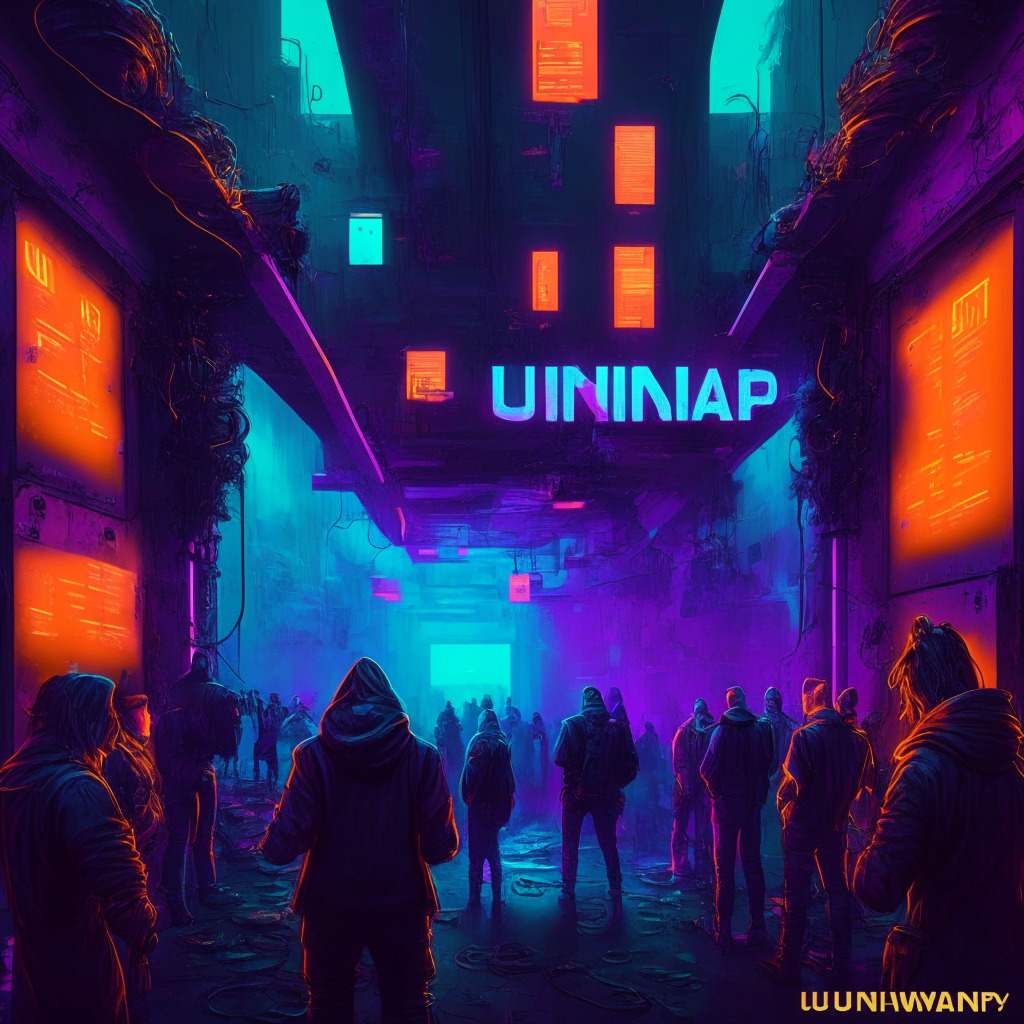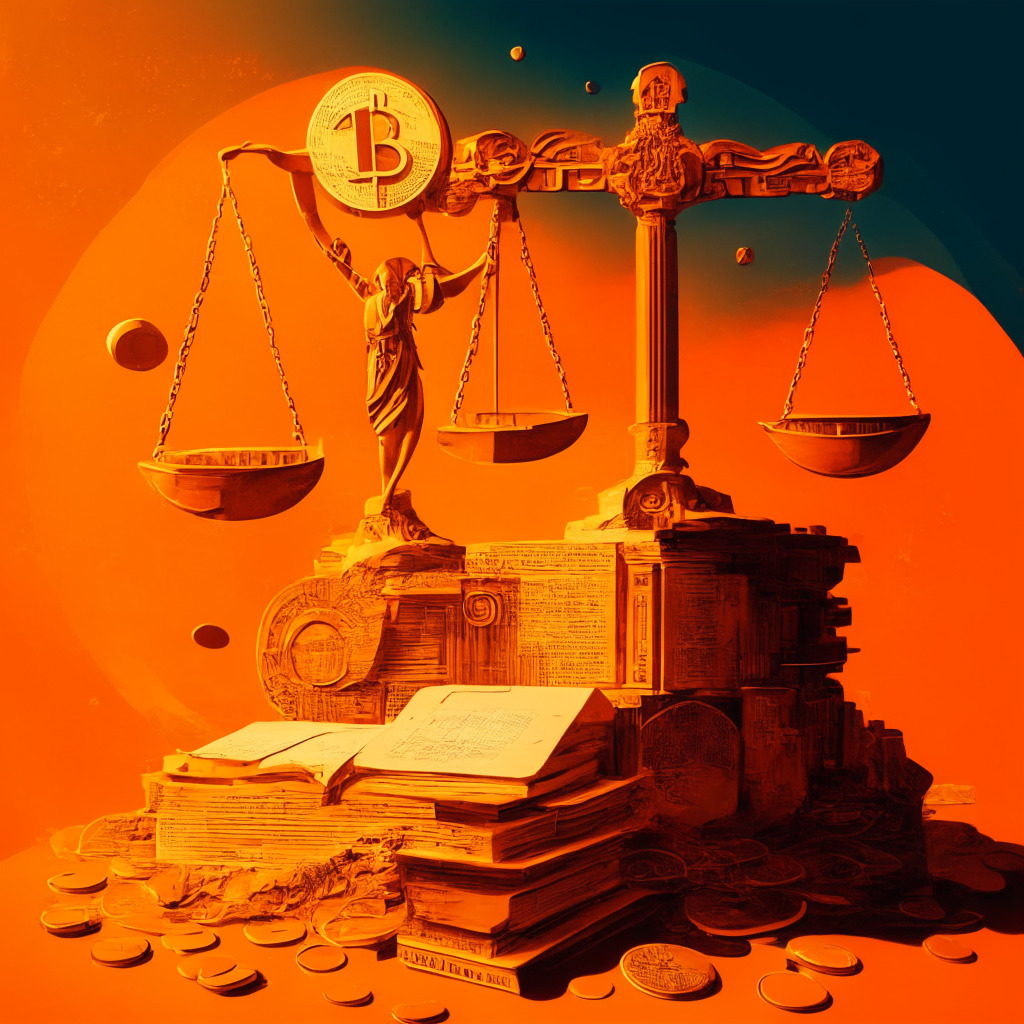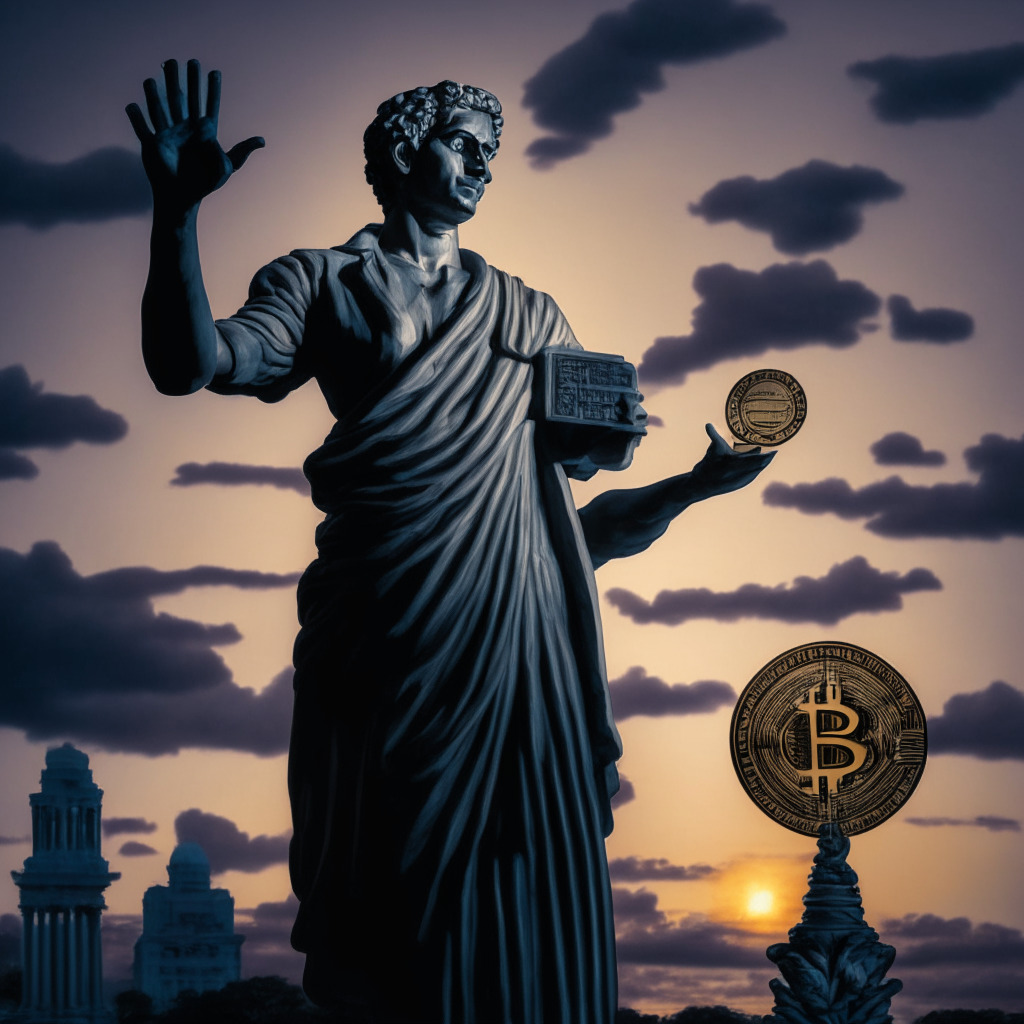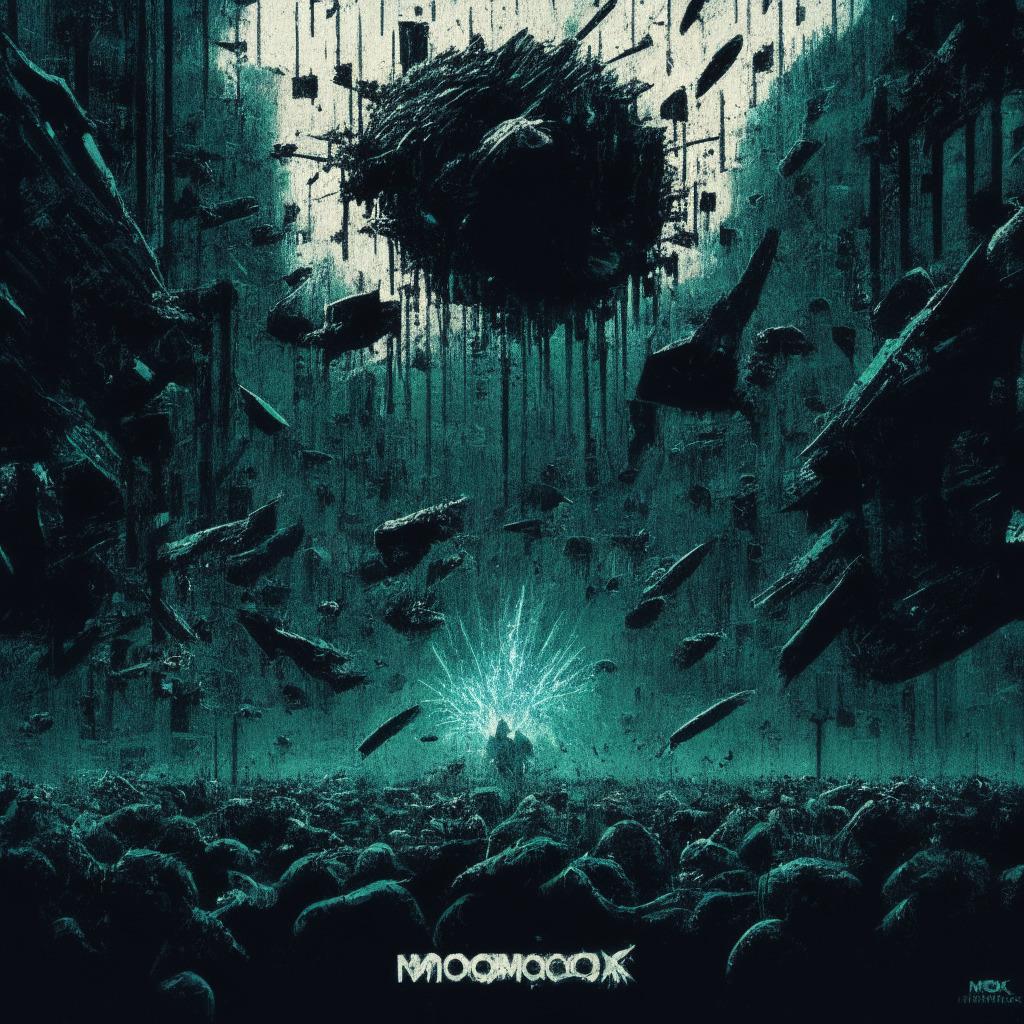A recent court dismissal of a class action lawsuit against Uniswap has prompted further discussions on cryptocurrency regulation. The ruling highlights the complex nature of DeFi platforms, emphasizing that software creators cannot be held liable for third-party misuse. The judgment underscores the importance of regulating entities in the tech-driven financial world, without stifling innovation through over-regulation.
Search Results for: Uniswap Labs
Binance Labs’ $5M Investment in Curve: A Hopeful Future Amidst Past Challenges
“Binance Labs has invested $5 million in Curve DAO Token (CRV) of the decentralized finance (DeFi) sector. While solidifying its lead as a stablecoin automated market maker, Curve had challenges, including a $70 million hack injuring its token price.”
Unveiling UniswapX: A Solution to DEX Challenges or an Avenue for Greater Market Competition?
Uniswap, a global leader in the decentralized crypto exchange, has announced the development of a new blockchain infrastructure, “UniswapX”. It’s designed to streamline trading on automated market makers and offers capabilities such as better pricing, gas-free swapping, and protection against maximum extractive value (MEV). Future updates anticipate gas-free cross-chain swaps and a deeper integration with the Uniswap wallet.
Uniswap v4 Launch Ignites Debate Over Business Source License and Open-Source Ethics
Uniswap’s decision to use a Business Source License (BSL) for its v4 release has sparked controversy within the Ethereum community, with critics arguing that it’s not truly open-source. The license allows public code access but restricts commercial or production use for four years before converting to a General Purpose License.
Uniswap V4: Exciting Features, Collaboration & Future Implications for Decentralized Exchanges
Uniswap Labs has released a draft of Uniswap V4, featuring “hooks” that allow developers to create custom liquidity pools and enhance the decentralized crypto exchange. The update aims to enable innovative aspects like on-chain limit orders and auto-compounded LP fees but requires more community feedback before implementation.
Unveiling Uniswap v4: Customizability, Hooks, and 99% Lower Gas Costs
Uniswap v4, the latest update to the top-performing decentralized exchange, introduces customizable features and draft core code for community-driven development. The release includes innovative smart contract “hooks,” enabling extended liquidity pools, time-weighted average market makers, dynamic fees, and more, while slashing pool creation gas costs by 99%.
Unveiling Uniswap v4: New Features, Singleton Contracts, and the Role of Hooks
Uniswap Labs has released draft code for Uniswap v4, which will introduce open-source “hooks” or smart contracts that can be plugged into pools for developers to build on. Architectural changes will significantly reduce gas fees, with no set deployment announced as community input is sought.
Uniswap’s V3 Fee Switch Debated: Failed Proposal, Legal Concerns, and Timing Issues
A recent DAO community poll on a proposed Uniswap V3 fee switch by GFX Labs ended in a split vote, delaying the initiative despite majority support. The proposal sought to charge liquidity providers a fraction of fees across Uniswap V3 pools and redistribute earnings to the UNI community. The failed vote was attributed to incorrect structuring, but consensus for future fee switches appears to be growing.
Uniswap Community Divided on Charging Fees to Liquidity Providers: A Tug-of-War Ahead
In a recent Uniswap community vote, 45% opposed charging fees to liquidity providers (LPs), while 42% favored a one-fifth fee on Uniswap V3 pools. The results could influence a formal vote later, showcasing divided community opinions on LP fee implementation.
Uniswap Fee Switch Proposal: Balancing Revenue Generation and Legal Concerns
The Uniswap community recently faced a significant decision regarding a fee switch proposal, with 45% voting against and 42% in favor. The fee would’ve been equivalent to 1/5 of pool fees across v3 pools. Concerns over tax and legal implications contributed to the vote result, sparking essential conversations on addressing these issues.
Breaking Down Barriers: Making DeFi Platforms Accessible and User-Friendly for Mass Adoption
A recent Uniswap Labs survey highlights potential barriers to DeFi adoption, including complexity and cost associated with on-chain trading. The crypto community must work together to educate users, simplify fee structures, and make DeFi platforms more approachable, fostering mass adoption.
Navigating the Regulatory Tightrope: New Senate Bill Targets DeFi Sector for Enhanced AML Measures
The proposed Crypto-Asset National Security Enhancement Act of 2023 seeks to implement stringent anti-money laundering measures on decentralized finance (DeFi) protocols. The bill presents solutions to regulate these protocols, aiming to enhance security, prevent evasion and sanction violations. It also addresses potential challenges tied to the regulation’s possibly discouraging impact on industry innovation.
Bitcoin’s Max Pain and AI-Driven Shift: Exploring Crypto Market Developments
Bitcoin holds above $30,000 while Ether trades lower as the crypto market anticipates upcoming quarterly options expiry. Meanwhile, investors shift focus to AI technologies, and financial institutions adopt tokenization as crypto’s new buzzword.
Tessera Shutdown: What It Means for NFT Fractionalization and Market Evolution
Tessera, a prominent NFT protocol, announced its shutdown and closure of Escher digital fine art marketplace. This decision comes after examining market scenarios, company structure, and financial status. The closures may signify growing pains as the NFT market matures and consolidates.
Regulatory Scrutiny vs Technological Advancements: Navigating the Complex Crypto Landscape
Despite regulatory challenges and hacking threats, the crypto sphere continues to innovate, with enhanced privacy, user experience, and transaction efficiency. As Ethereum plans a major transformation and Ripple maintains its legal standing, the tokenized assets market could reach $16 billion by 2030. However, effective regulation remains vital to safeguard all stakeholders.
Decoding the ‘Ethereum Supreme Court’ Vision: Innovative Shield or Expensive Experiment?
Alex Gluchowski of Matter Labs proposes the formation of an ‘Ethereum Supreme Court’, an on-chain hierarchical court system working alongside current judicial structures to safeguard the Ethereum network against undue external interference. This system aims to handle various issues like disputes and emergency upgrades but its success depends largely on social consensus.
Ramaswamy’s Support and Regulatory Challenges: Unraveling the Future of Cryptocurrency in the US
“U.S. Presidential candidate Vivek Ramaswamy praised Grayscale’s victory over the federal securities regulator, asserting it could further Bitcoin and blockchain innovation. However, the legal landscape for cryptocurrency regulation remains complex and uncertain, despite support from industry influencers and active discussions for clear regulations.”
The Rise and Swift Fall of Pond0X: A Stark Warning for Crypto Investors
The recent Pond0X (PNDX) launch led to staggering investor losses, with the memecoin value plummeting nearly instantly. Miscommunication regarding its launch platform and a glitch permitting unauthorized transfers contributed to its downfall. This reinforces the need for diligence and understanding in crypto investments.
Insider Trading Shadows in the Crypto World: A Crypto-Evolution Stalemate?
Blockchain intelligence firm, Solidus Labs, finds about 56% of new ERC-20 tokens are involved in suspicious transactions before they debut on centralized exchanges. Insiders exploit this anonymity to profit from unexpected token price spikes, creating a market manipulation trend that jeopardizes the trust, efficiency, and integrity vital for a robust financial ecosystem in the crypto world.
Crypto Market Bullishness Shifts to Asia Amid US Regulatory Pressure and Hong Kong Hesitation
Despite market fluctuations and mounting regulatory pressure, the bullishness remains in the crypto market, driven by developments overseas, particularly in Asia and the Middle East. However, Hong Kong banks’ reluctance to onboard crypto clients poses a significant barrier to fostering growth and expansion in the crypto market.
Polygon 2.0: Navigating Global Regulatory Hurdles and Community Control Challenges
Polygon unveils its upcoming project, Polygon 2.0, focusing on development and deployment outside the US amid a tough regulatory environment. With the aim to attract the global community’s attention, Polygon 2.0 will be a network of ZK-powered L2 chains, emphasizing community-driven decisions and facing challenges from US regulatory crackdowns on digital assets.
Andreessen Horowitz’s London Expansion: Pros, Cons, and the Future of Crypto Regulation
Andreessen Horowitz (a16z) is opening its first office outside the U.S. in London, aiming to capitalize on a predictable business environment and welcoming stance toward blockchain technology. The firm will also launch a Crypto Startup School program in Spring 2024 and collaborate with U.K. universities to promote blockchain education.
Ledger Wallet Recovery Debates & Exciting Developments: A Busy Week for Crypto Enthusiasts
This week in crypto, Ledger introduced a wallet recovery service, ETH staking demand soared, Tether invested in Bitcoin, and Samsung partnered with the Bank of Korea for CBDC research. Additionally, Ripple acquired Metaco, and a Uniswap survey highlighted the need for DeFi simplification.






















